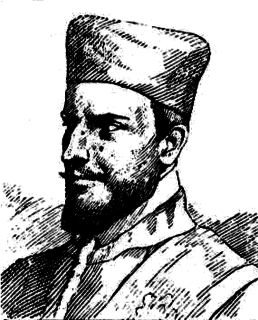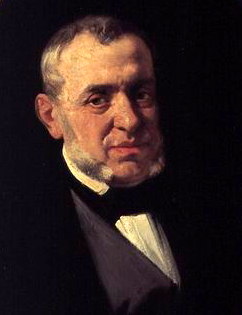
Don Giovanni is an opera in two acts with music by Wolfgang Amadeus Mozart and Italian libretto by Lorenzo Da Ponte. It is based on the legends of Don Juan, a fictional libertine and seducer, written by Tirso de Molina. It was premiered by the Prague Italian opera at the National Theater, now called the Estates Theatre, on 29 October 1787. Da Ponte's libretto was billed as a dramma giocoso, a common designation of its time that denotes a mixing of serious and comic action. Mozart entered the work into his catalogue as an opera buffa. Although sometimes classified as comic, it blends comedy, melodrama and supernatural elements.

Giuseppe Sarti was an Italian opera composer.
Telemaco, ossia L'isola di Circe is an operatic dramma per musica in two acts by Christoph Willibald Gluck. The Italian libretto was written by Marco Coltellini after Carlo Sigismondo Capece's libretto for Scarlatti's 1718 opera Telemaco.

Giulio Sabino is a dramma per musica in three acts by Giuseppe Sarti. The libretto was by Pietro Giovannini.

Medonte, re di Epiro is an opera seria in three acts by Giuseppe Sarti. The libretto was by Giovanni de Gamerra for Felice Alessandri's opera Medonte, re d'Epiro (1774) and was later set by several other composers.

Le gelosie villane is a dramma giocoso in three acts by Giuseppe Sarti. The libretto was by Tommaso Grandi. It was also known as Il feudatorio, Il feudatorio burlato and I contadini bizzari. It was also set by Pasquale Anfossi.

Der Rauchfangkehrer, oder Die Unentbehrlichen Verräther ihrer Herrschaften aus Eigennutz is an opera in three acts by Antonio Salieri to a German libretto by Leopold Auenbrugger. Originally designated as a Musikalisches Lustspiel, the work has the characteristics of both a German Singspiel and an Italian opera buffa.

Falstaff, ossia Le tre burle is a dramma giocoso in two acts by Antonio Salieri, set to a libretto by Carlo Prospero Defranceschi after William Shakespeare's The Merry Wives of Windsor.

Oristeo is an opera in a prologue and three acts by Francesco Cavalli. It was designated as a dramma per musica. The Italian libretto was by Giovanni Faustini.

Xerse (Xerxes) is an opera in three acts by Giovanni Bononcini. It was designated as a dramma per musica. The libretto was written by Silvio Stampiglia after that by Nicolò Minato which had been used for the 1654 opera of the same name by Francesco Cavalli. Stampiglia's version was in turn used as the basis for Handel's Serse.
A catalogue aria is a genre of opera aria in which the singer recounts a list of information that was popular in Italian comic opera in the latter half of the eighteenth and early nineteenth centuries. "Madamina, il catalogo è questo" from Wolfgang Amadeus Mozart's Don Giovanni is the most famous example, and is often referred to as "the catalogue aria". Leporello notes how many lovers the title character has had in each country he has visited. Pasquale sings two such arias in Joseph Haydn's Orlando paladino, "Ho viaggiato in Francia, in Spagna" in act one, which lists the countries to which he has traveled, and "Ecco spiano" in act 2, which rattles off all of his varied musical talents.

Sigismondo is an operatic 'dramma' in two acts by Gioachino Rossini to an Italian libretto by Giuseppe Maria Foppa.

Orazi e Curiazi is an opera by the Italian composer Saverio Mercadante. It takes the form of a tragedia lirica in three acts. The libretto, by Salvadore Cammarano, is based on the Roman legend of the fight between Horatii and Curiatii. It was first performed at the Teatro San Carlo, Naples, on 10 November 1846.
Giovanni Battista Lorenzi was an Italian librettist. He was born in Puglia and died in Naples and was a friend of Giovanni Paisiello, with whom he collaborated on numerous operas.

Semiramide riconosciuta is an Italian opera with serious action, or dramma per musica, by Nicola Porpora, set to a libretto by Metastasio with some textual changes, possibly by Domenico Lalli. The opera was written for some of the finest contemporary singers, and includes a technically demanding series of da capo arias.

Calto is an opera seria in three acts by Francesco Bianchi. The libretto was by Giuseppe Maria Foppa, after the 'Celtic' poetry of Ossian. The opera was first performed at the Teatro San Benedetto in Venice on 23 January 1788.

Castore e Polluce is an opera seria by Francesco Bianchi. The libretto was one translated by Carlo Innocenzo Frugoni, from Pierre-Joseph Bernard's French text for Rameau's Castor et Pollux.

Alonso e Cora is an opera seria in three acts by Francesco Bianchi. The libretto was by Giuseppe Foppa, after Ferdinando Moretti's Idalide, o sia La vergine del sole, as used by Giuseppe Sarti in Milan in 1783. The original source of this text was in turn Jean François Marmontel's Les Incas, ou La destruction de l'empire du Pérou (1777).
This page is based on this
Wikipedia article Text is available under the
CC BY-SA 4.0 license; additional terms may apply.
Images, videos and audio are available under their respective licenses.










